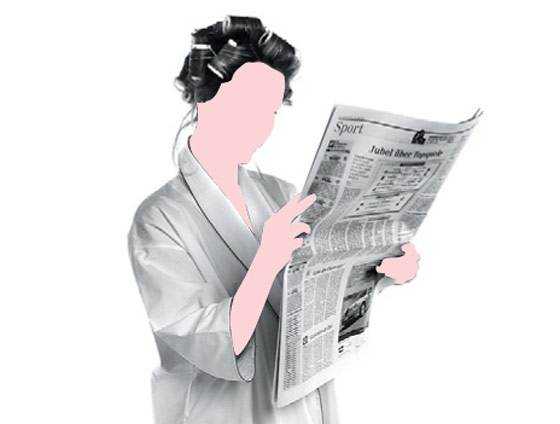
As fantasies go, this one is beyond innocent, involving neither a bemuscled UPS man nor an indulgent yoga boot camp with my best friend in Tulum. In it, husband and child are elsewhere but safe, returning home soon but not imminently. I have an hour alone in the apartment, with which to do what I please. And what pleases me is to putter.
Puttering (or pottering or putzing, depending on your tribe) is an activity, if it can be properly called that, of desultory bliss. It’s a mental and physical wandering that helpfully repels any impulse to be genuinely productive. The word—which evokes other varieties of ineffectuality, such as spluttering and stuttering—has an archaic taint, bringing to mind biddies in their rose gardens and widowers with their coin collections. But modern life has elevated puttering to an aspirational necessity. Just as generations of working men yearned for their Sunday-morning tee time, now overbusy people choose to celebrate their individuated Sabbaths with a round of fussing about.
In a survey on the uses of free time among American women commissioned by Real Simple magazine and conducted by the Families and Work Institute, 71 percent said that they most like to spend their free time “just relaxing.” On a long list of leisure choices, it came in third, ahead of reading, watching TV, seeing friends, playing sports, or listening to music; tied with “going out for a special meal” and spending time with pets (which in any case is obligatory; the dog has to be walked); and behind only spending time with their kids or partner. Since respondents were given so many specific options to choose from, this “just relaxing” seems to encompass … nothing in particular. “It’s puttering,” Ellen Galinsky, president of the Families and Work Institute, theorizes. “It’s the abandonment of our forever to-do list. I’m so happy when I have time to just putter. I might look at the flowers and decide they need watering. I might think about calling my sister. I might think about calling my college roommate.” And then she might half-do something entirely different, before meandering to the next diversion.
Despite two generations of gains made by women in the workplace and a growing acknowledgment that men can work the dishwasher and clothes dryer, too, the Real Simple survey found that American women retain a Puritanical streak: They spend considerable amounts of their free time catching up on housework, even though they hate it, because they feel they cannot enjoy themselves properly until all their chores are done. It’s here that puttering finds its greatest value, as a way out of this self-defeating bind. It offers respite from the relentless obligations of a life in which even relaxing can feel like something that needs to be scheduled in, and it does so with a ruse. Putterers carry an aura of being importantly occupied (picking up, gardening, sorting coins) even as they’re doing nada. It’s the cover of busyness that creates the insulating bubble, for it shields you from the disapproval of onlookers—and even from yourself.
Have good intel? Send tips to intel@nymag.com.
